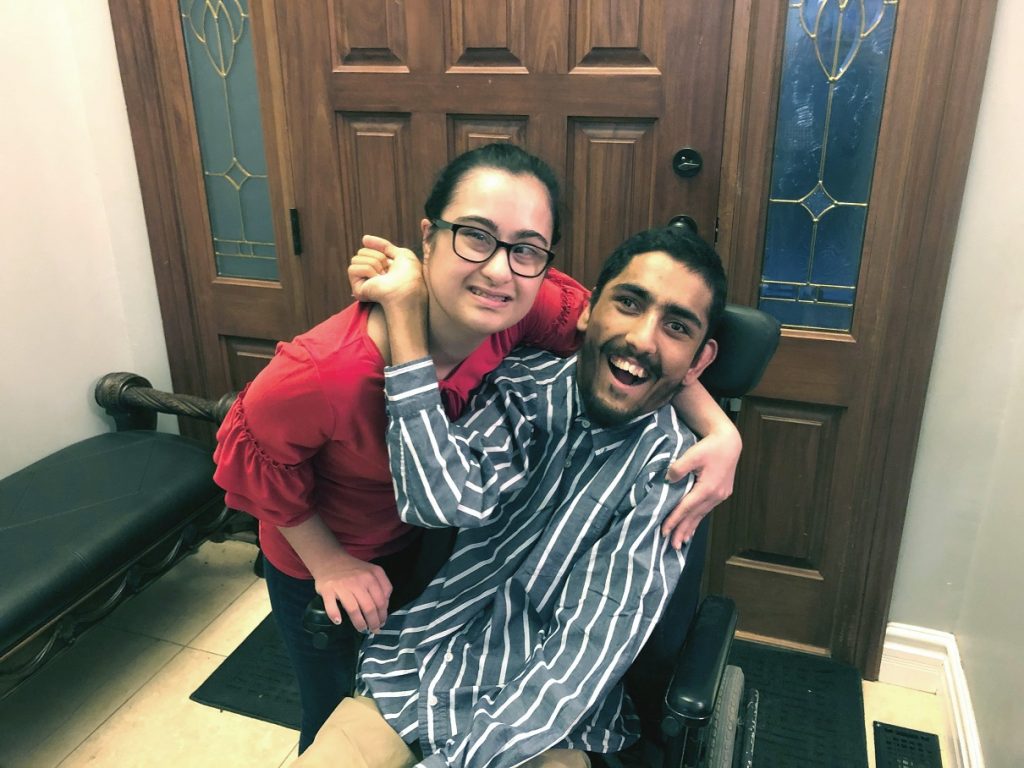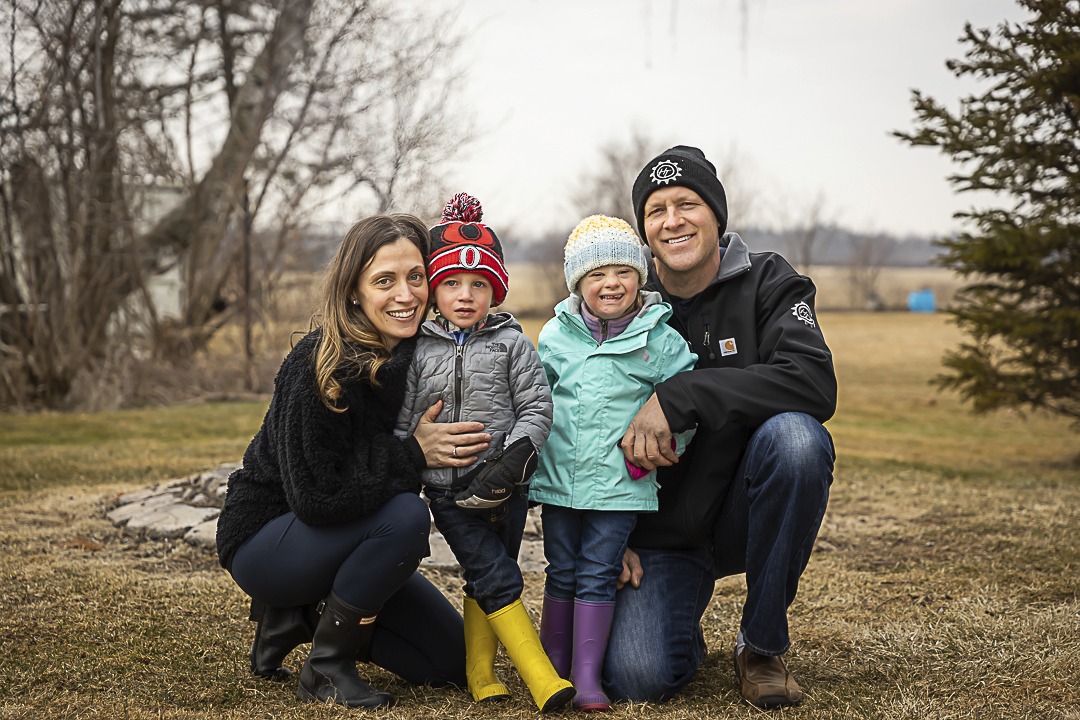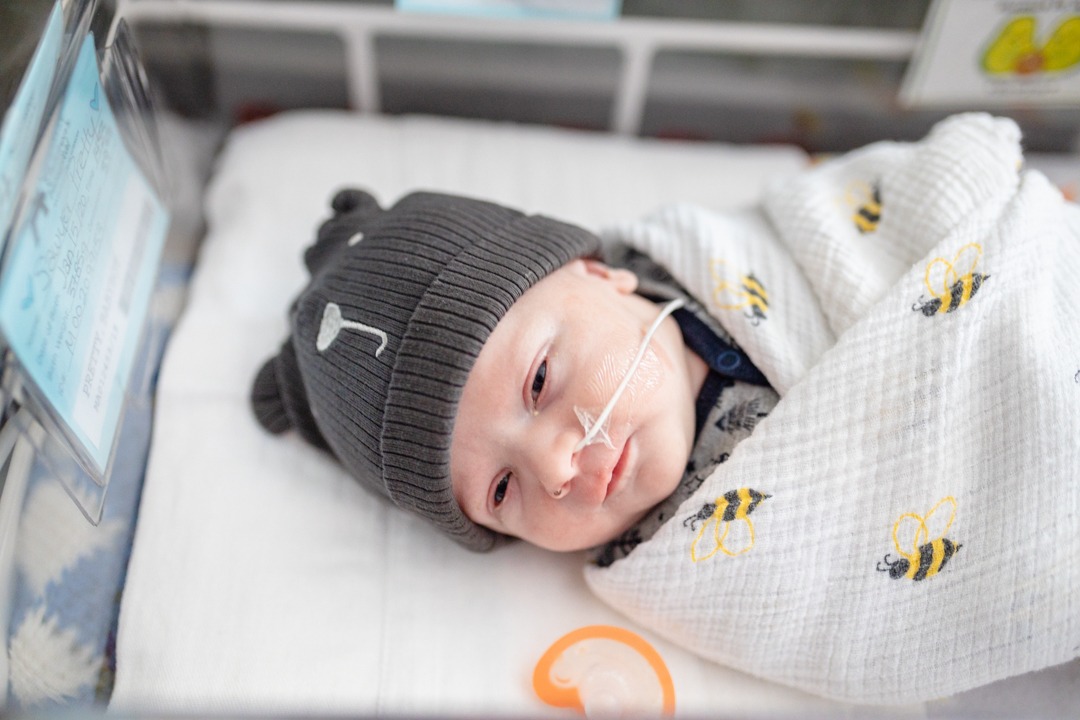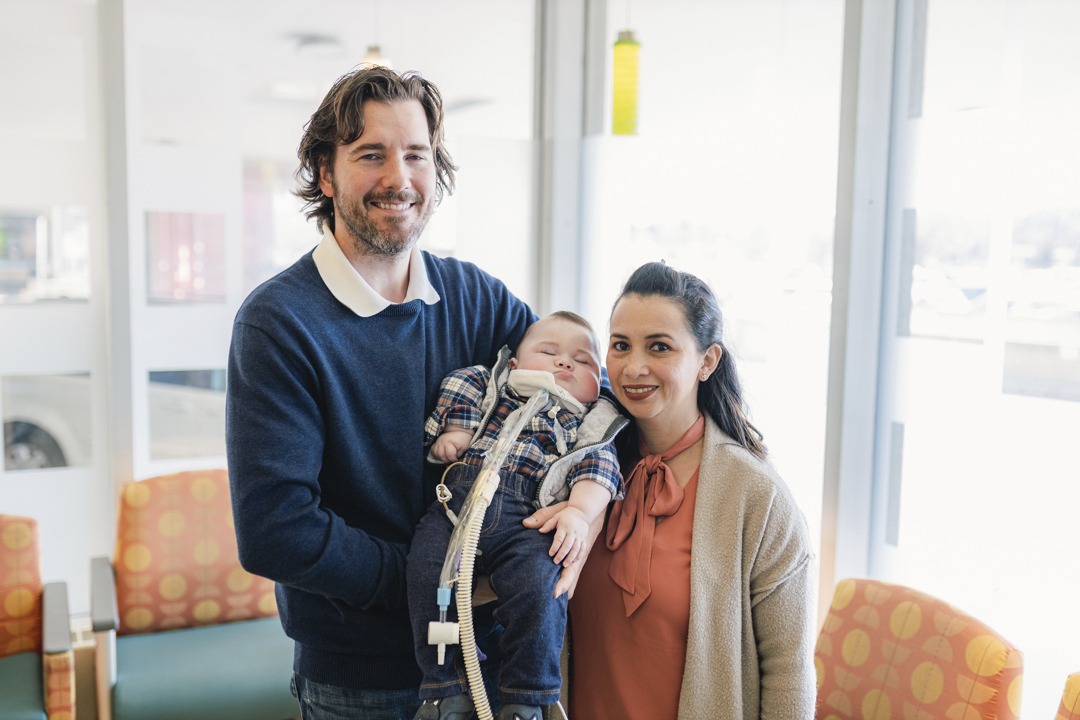
Specialized care for siblings
Many siblings share a special bond. For Sukhman and Jupnoor of Stoney Creek, their bond is tied to the life-altering care they both receive at Hamilton Health Sciences (HHS).
Sukhman’s story
Sukhman, now 19, was born prematurely at 25 weeks via emergency cesarean section (C-section) in Brampton before being transferred to the Neonatal Intensive Care Unit at McMaster Children’s Hospital (MCH).
“We were worried whether he was going to survive,” says Sukhman’s father, Harpreet.
The next six months were challenging for the family, as Sukhman required round-the-clock care by the multidisciplinary teams at MCH.
“Sukhman had multiple blood transfusions due to significant blood loss,” explains Harpreet. “He required the extensive use of a ventilator and feeding tube, and underwent surgery for a heart defect.”
“We’re so thankful to have HHS looking after our kids.”
The family received more life-changing news: Sukhman was diagnosed with cerebral palsy (CP), a neurological disorder characterized by impaired motor function and muscle stiffness.
“We wouldn’t know the severity of his condition until he got older,” says Harpreet, “but MCH prepared us to care for him once he was finally discharged.”
Sukhman required physiotherapy first at Chedoke Hospital, when it was still in operation, and then at Ron Joyce Children’s Health Centre (RJCHC). He visited regularly for ankle and knee braces to support his posture, as well as adjustments for his wheelchair.
Sukhman was also a frequent visitor to the Pediatric Complex Care Unit at MCH.
Now an adult, Sukhman graduated from MCH and transitioned to the HHS’ Regional Rehabilitation Centre for ongoing care.
Jupnoor’s story
Younger sister Jupnoor, 17, was diagnosed with Down syndrome shortly after her birth and visited MCH for assessment and consultation. Similar to her brother, Jupnoor also visited Chedoke and RJCHC for leg braces and orthotics.
“When Jupnoor was later diagnosed with celiac disease, MCH established a proper diet and helped regulate her gluten allergy,” says Harpreet.
The family received additional news when Jupnoor was diagnosed with type 1 diabetes.
“She underwent numerous examinations and we were taught how to manage her diabetes, such as learning how to test her blood sugar, read her meter and record all the information. We still visit every three months for follow-up care.”
Despite the medical challenges that both children have experienced, the family is grateful that HHS has enhanced Sukhman and Jupnoor’s quality of life.
“The care we receive is exceptional,” says Harpreet. “We’re so thankful to have HHS looking after our kids.”



